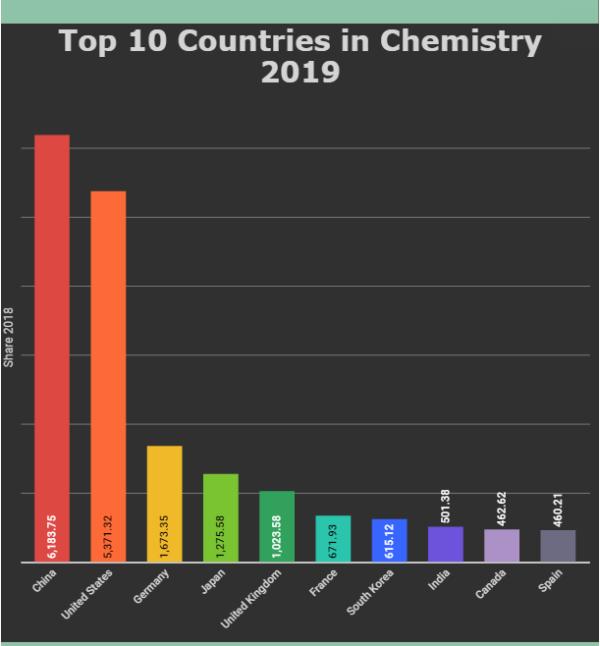
(Photo: The Paper)
According to the assessment released by Nature, the world’s leading multidisciplinary science journal, on Dec. 12, China for the first time ranked No.1 in chemistry in 2019.
China’s Nature index stands at 6,183.75, a year-on-year increase of 17.9%, exceeding the combined total of Japan, South Korea and India.
Published in Nov. 2014 for the first time, the Nature Index reveals the quality output of scientific research from countries, research institutions, and companies, and releases rankings every year.
The United States topped the Natural Index in Chemistry list for three consecutive years, but this year, it was only 5,371.32, a year-on-year decline of 6.2%.
The third to tenth on the list are Germany, Japan, the United Kingdom, France, South Korea, India, Canada and Spain. This ranking was basically the same as the previous year, except for Spain, which rose slightly by 1.3%. The output of high-quality chemistry papers in other countries has generally declined. Among them, Japan's Natural Index fell 12.6% year-on-year, the largest decline among the top ten.
In the middle of this year, Nature also released the ranking of chemical research institutions, which is in line with the general trend of the country rankings. The top ten research institutions with the highest output of high-quality chemistry papers are the Chinese Academy of Sciences, the French National Research Center, the German Max Planck Society, Nanjing University, Peking University, Tsinghua University, University of Science and Technology of China, MIT, Northwestern University and Stanford University.
Among them, research institutions from China occupy half of the list, and Tsinghua University jumped from 17th place in 2015 to 4th, pushing the University of Tokyo, originally ranked 4th, out of the top 10.
In addition, among the top 10 outstanding papers of 2019 selected by Nature, two are Chinese achievements. One is from Fudan University, which brings new light to the clinical treatment of Huntington's chorea. The other is from the Shanghai Institute of Organic Chemistry, Chinese Academy of Sciences, related to "click chemistry".
(Compiled by Wang Yanan)


